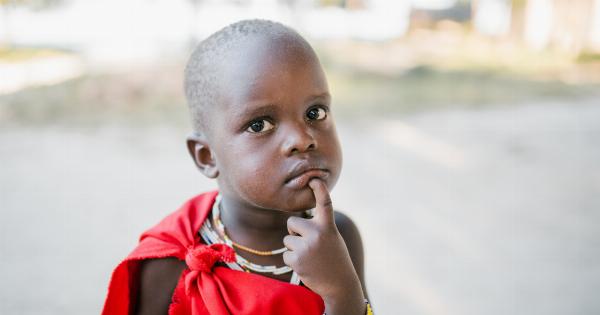Kissing is a universally accepted form of affection that is used to express love, care, and passion. Parents often express their love for their children through kisses.
However, there is a growing concern about whether kissing children on the mouth is appropriate or not. Some parents argue that it is a natural expression of love, while critics believe it can lead to confusion and psychological issues for children. In this article, we will highlight seven reasons why kissing your children on the mouth is not advised.
1. Confusion Between Love and Romance
Kissing on the mouth is generally associated with romance and intimacy. Children may get confused about the difference between love and romance when their parents kiss them on the mouth. This confusion can lead to psychological issues in the future.
As parents, we must make sure that we do not blur the lines between love and romance when it comes to our children.
2. Risk of Transmitting Infection
Children have a weaker immune system than adults. Kissing on the mouth can lead to the transmission of various infections and diseases, including herpes, cold sores, and flu.
Parents must avoid kissing their children on the mouth, especially during flu season and when they themselves have a cold sore or infection.
3. Threat to Child Safety
Children are vulnerable and may not be able to understand the difference between appropriate and inappropriate physical touch. Kissing on the mouth may encourage unwanted or inappropriate physical contact from others.
It is important to teach children about personal boundaries and consent to protect them from such threats.
4. Cultural Differences
Kissing on the mouth is not a universally accepted form of affection. Different cultures have different norms and practices when it comes to showing affection. Kissing on the mouth may be seen as inappropriate or offensive in some cultures.
Parents must understand and respect cultural differences when it comes to showing affection to their children.
5. Impact on Parent-Child Relationship
Physical touch is an important aspect of parent-child bonding. However, kissing on the mouth may have a negative impact on the parent-child relationship in the long run. Children may feel uncomfortable or embarrassed when they grow older.
This discomfort may lead to a strained relationship between parents and children.
6. Misinterpretation by Others
Parents kissing their children on the mouth may be misinterpreted by others, leading to awkward or uncomfortable situations. Teachers, caregivers, or even strangers may see this behavior as inappropriate or abusive.
It is important to avoid such misunderstanding by showing affection to children in appropriate ways.
7. Unnecessary Pressure on Children
Kissing on the mouth may put unnecessary pressure on children to show physical affection to others, even if they feel uncomfortable or unwilling.
Children must have the freedom to express their feelings and emotions without any pressure or coercion from others. Parents must understand and respect their children’s boundaries and preferences when it comes to physical touch.
Conclusion
In conclusion, kissing on the mouth may seem like a harmless gesture of affection, but it can have serious consequences for children’s physical and psychological well-being.
As parents, we need to be mindful of our actions and their impact on our children. It is important to show affection to children in appropriate and healthy ways that respect their personal boundaries and cultural norms.






























